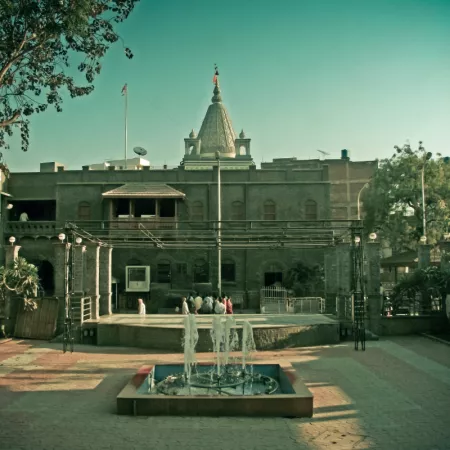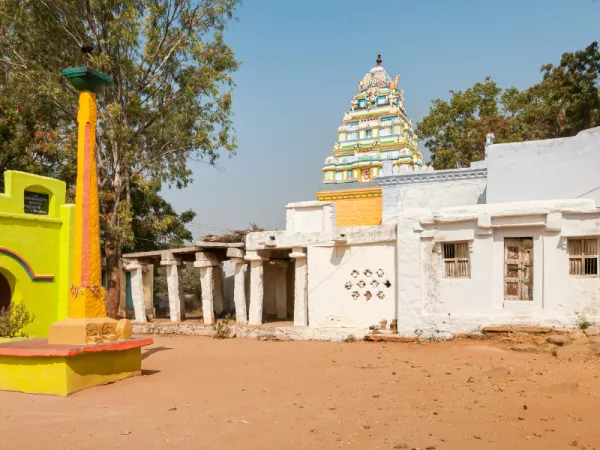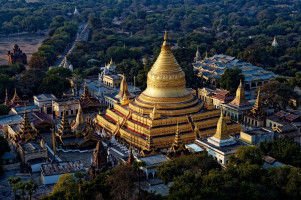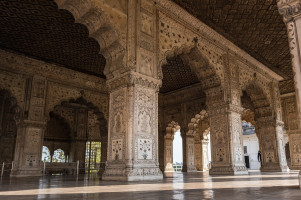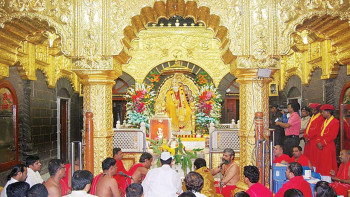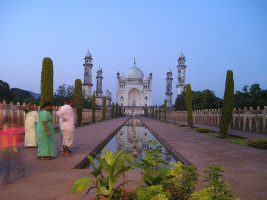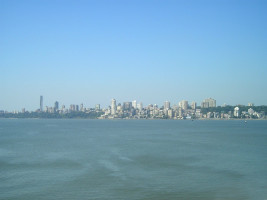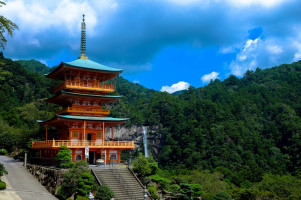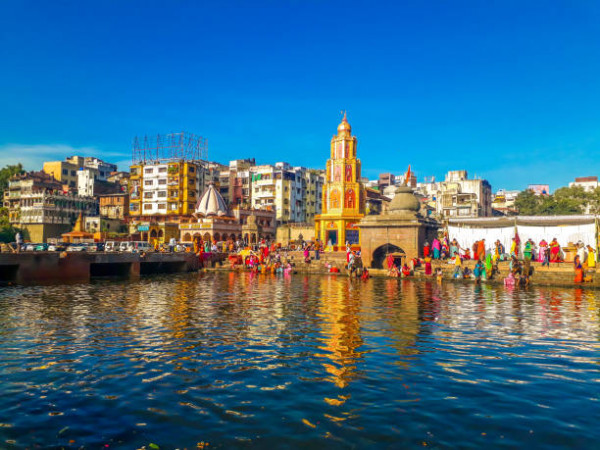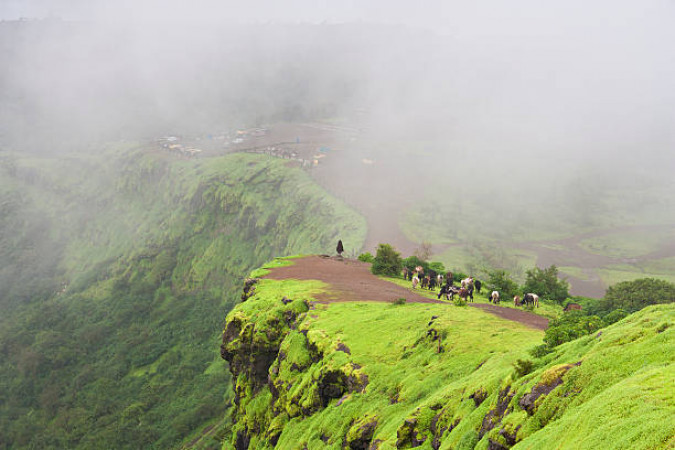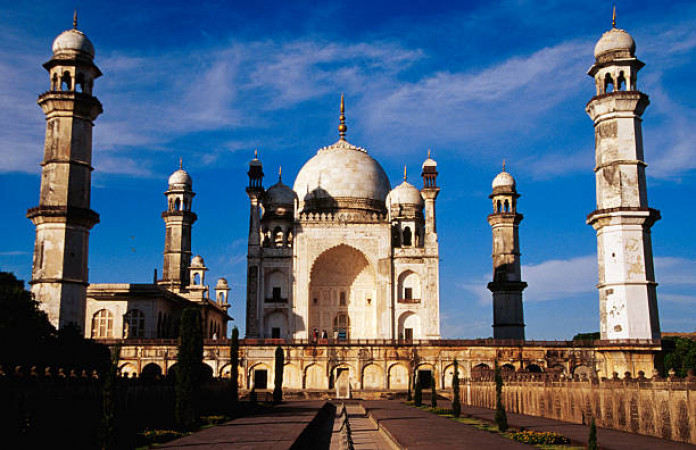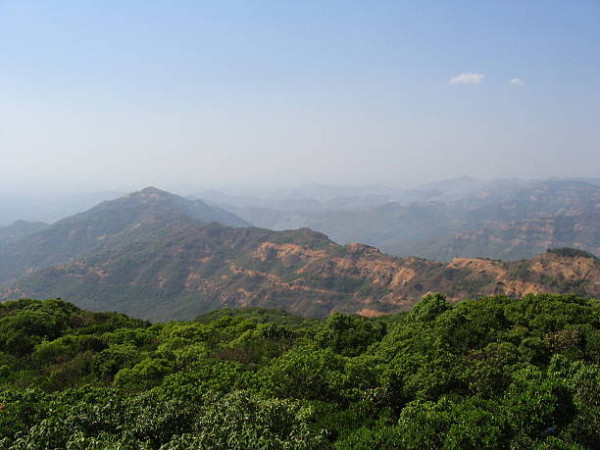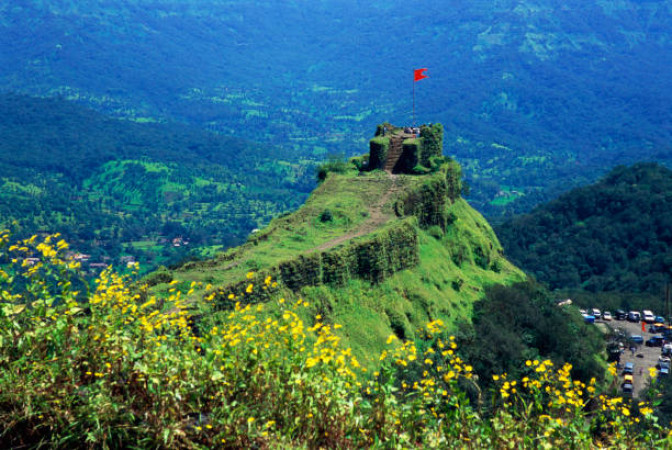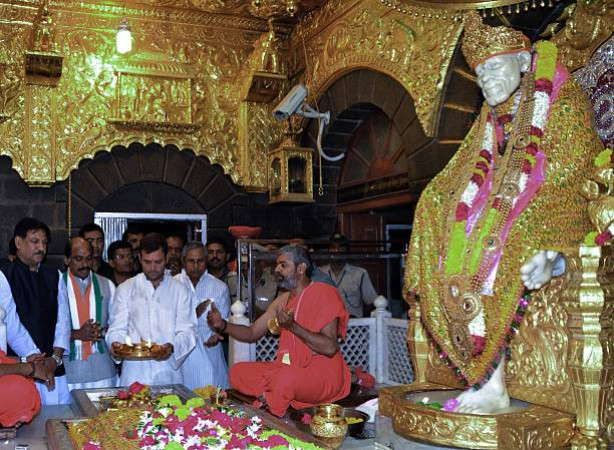
Shirdi
Package
16000 to 20000
16000 to 20000
Duration
2 to 3 Days
2 to 3 Days
Best time to visit
Jul-Dec
Jul-Dec
Theme
Religious
Religious
Shirdi Travel Guide
Shirdi, a small town in Maharashtra, India, is renowned as the home of the revered spiritual leader Sai Baba. This pilgrimage site holds great historical and cultural significance, drawing devotees from around the world. The town is famous for the Sai Baba Temple, where his tomb is located, and for the peaceful and spiritual atmosphere that permeates the area.Top Attractions in Shirdi
- Sai Baba Temple
- Chavadi
- Dwarkamai
- Khandoba Temple
- Lendi Baug
Shirdi is Famous for
Spiritual seekers flock to Shirdi to pay homage to Sai Baba and seek his blessings.Top Attractions in Shirdi
- Experience the serene atmosphere at Sai Baba Temple
- Attend the daily rituals and aarti at Dwarkamai
- Explore the historical significance of Chavadi
- Visit the peaceful gardens of Lendi Baug
- Discover the local culture at Khandoba Temple
What's Great about Travelling to Shirdi?
- Spiritual Experience: Ideal for devotees of Sai Baba
- Peaceful Atmosphere: Perfect for those seeking serenity
- Cultural Exploration: Learn about the local traditions and customs
What's Not So Great about Travelling to Shirdi?
- Limited Nightlife: Not ideal for partygoers
- Crowded During Festivals: May get crowded during peak pilgrimage seasons
- Restricted Activities: Limited entertainment options beyond spiritual sites
Travel Tips for Shirdi
- Visa Requirements: Check visa regulations before traveling
- Transportation: Opt for local buses or taxis for easy travel within the town
- Safety Tips: Be cautious of pickpockets in crowded areas
Important Shirdi trip information
- Ideal Duration: 2-3 days
- Best Time to Visit: October to March
- Nearby Airports and Railway Stations: Aurangabad Airport and Sainagar Shirdi Railway Station
Top 14 Places to visit in Shirdi
Per Person
16,650
*EXCLUDING APPLICABLE TAXES Per Person
20,150
*EXCLUDING APPLICABLE TAXES Per Person
9,329
*EXCLUDING APPLICABLE TAXES 5.0 Ratings
( 23 Reviews )
( 23 Reviews )
Per Person
21,650
*EXCLUDING APPLICABLE TAXES Per Person
8,991
*EXCLUDING APPLICABLE TAXES 4.9 Ratings
( 200 Reviews )
( 200 Reviews )
Per Person
15,550
*EXCLUDING APPLICABLE TAXES FAQ's on Shirdi
Q1: What is the best time to visit Shirdi?
The best time to visit Shirdi is from October to March when the weather is pleasant, making it ideal for exploring the town and visiting the Sai Baba Temple. Avoid the summer months from April to June, as temperatures can soar. The monsoon season from July to September brings heavy rainfall, which may disrupt travel plans.
Q2: Do I need a visa to travel to Shirdi?
Shirdi is located in India, and most travelers will require a valid Indian visa to visit. Check with the Indian embassy or consulate in your country for specific visa requirements. Citizens of certain countries may be eligible for e-Visas or visa-on-arrival facilities. Make sure to have your passport and visa documents in order before traveling.
Q3: What are the must-visit attractions in Shirdi?
Shirdi is renowned for the Sai Baba Temple, a significant pilgrimage site for devotees. Other attractions include Dwarkamai, Chavadi, and Khandoba Temple. Explore the Shirdi Water Park for some fun and relaxation. Don't miss the Gurusthan, where Sai Baba spent a significant amount of time. The Lendi Garden is a peaceful spot for a leisurely stroll.
Q4: Is Shirdi a safe place to travel?
Shirdi is considered a safe destination for travelers. Like any place, it's advisable to take general precautions with your belongings and be mindful of your surroundings. Avoid isolated areas at night and be cautious in crowded places. The locals are friendly and accommodating, making it a welcoming destination for tourists.
Q5: What is the local currency in Shirdi and can I use credit cards?
The local currency in Shirdi is the Indian Rupee (INR). ATMs are easily accessible in the town for cash withdrawals. While larger establishments may accept credit cards, it's recommended to carry cash for smaller vendors and local markets. Inform your bank of your travel plans to ensure smooth card transactions.
Q6: What is the local cuisine like in Shirdi?
Shirdi offers a variety of vegetarian dishes, reflecting its religious significance. Try the traditional Maharashtrian cuisine like Puran Poli, Sabudana Khichdi, and Poha. Don't miss out on the Prasadam served at the Sai Baba Temple. Explore local eateries for authentic flavors and snacks like Kachori and Bhel Puri. Dietary restrictions can be accommodated at most restaurants upon request.
Q7: What transportation options are available in Shirdi?
In Shirdi, travelers can rely on local buses, auto-rickshaws, and taxis for transportation within the town. Car rentals are also available for exploring nearby attractions. Private tour operators offer guided tours to prominent sites. Consider hiring a local guide for a more immersive experience. Walking is a convenient option for short distances, especially around the temple complex.
Q8: Are there any cultural norms or etiquette I should be aware of when visiting Shirdi?
When visiting Shirdi, it's important to dress modestly, especially when visiting religious sites like the Sai Baba Temple. Remove footwear before entering temples and follow the customs and rituals observed by devotees. Respect the local traditions and practices, such as offering prayers with folded hands. Seek permission before photographing individuals or religious ceremonies. Engage with the locals respectfully and immerse yourself in the spiritual ambiance of Shirdi.
Q9: I am a travel agent. How can I buy travel leads of Shirdi?
Register yourself as a travel agent at agents.tripclap.com and then you can buy travel leads to Shirdi once your account is approved. For more details contact our support team at +91-8069186564 or support@tripclap.com
